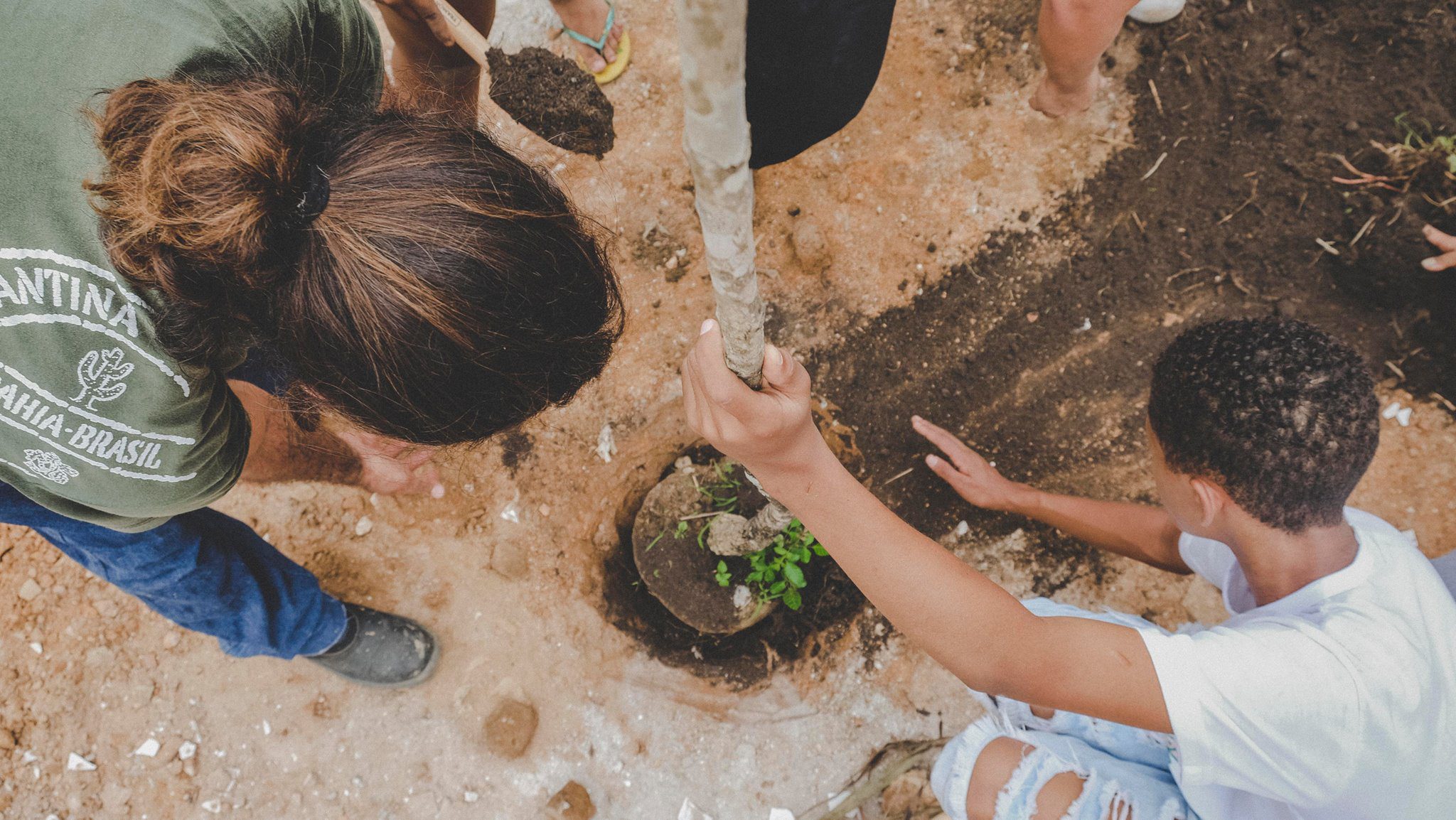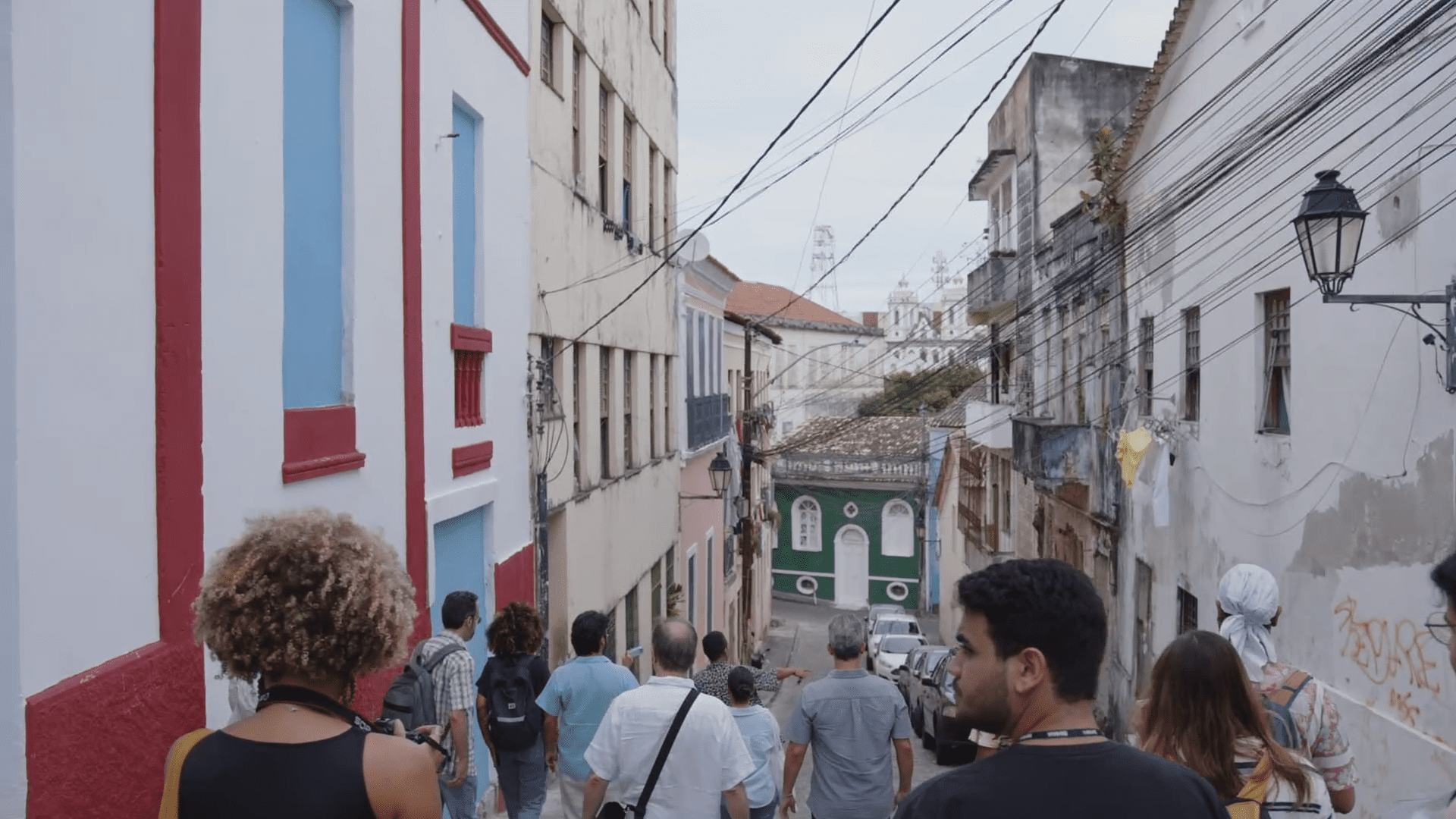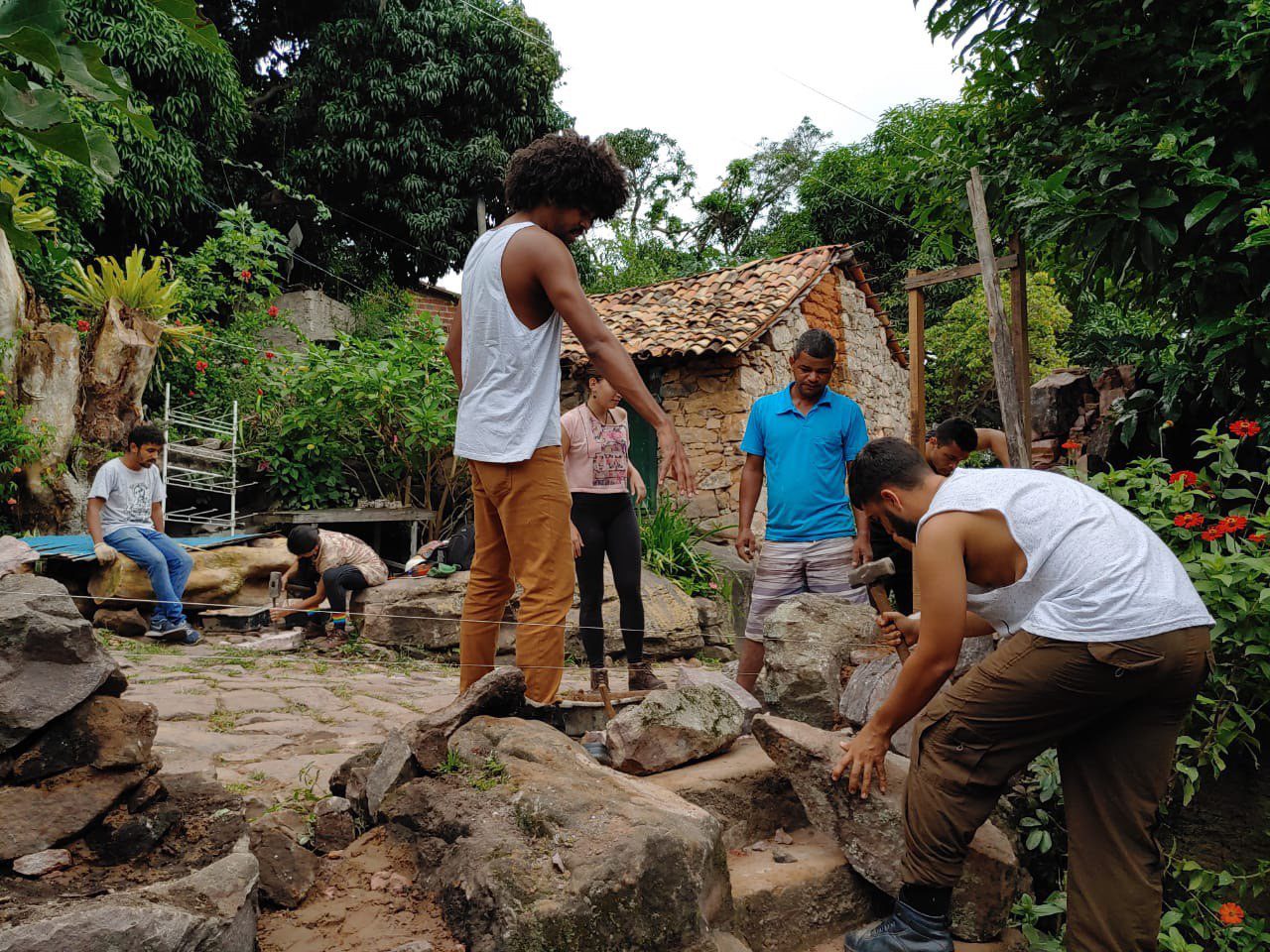The debate will feature guests from socio-technical advisory services to local communities in Bahia discussing construction site experiences and citizen participation. Technical advisory services are multidisciplinary teams that work with communities in peripheral territories, contributing to construction, renovation, and land regularization, urban development, as well as developing plans, advocacy strategies, and conflict mediation. So, how can we collaborate with local communities? What are the challenges of technical advisory services, and what progress has been made in local social transformation?
Thais Rosa
Professor and researcher at the School of Architecture of the Federal University of Bahia, the AU+E Residency Program – Specialization in Technical Assistance, Housing, and the Right to the City – and the Graduate Program in Architecture and Urbanism, where she coordinates the Margear group. She currently coordinates the Periferia Viva Action Plan for the Alto da Conquista and Marielle Franco occupations in Simões Filho, Metropolitan Region of Salvador, Bahia. She was a member of the Monotrilho em Disputa (Monorail in Dispute) and the Zeis Já! (Our Right to Housing and the City) Campaign in Salvador, Bahia. She was a founding member of the TEIA collective – a creative house (São Carlos, SP) and a collaborator in the USINA advisory board – a center for work on the inhabited environment (São Paulo, SP).
Debora Didone
A journalist, permaculturist, and socio-environmental activist, Débora has dedicated herself for 13 years—since the creation of Canteiros Coletivos—to developing, fundraising, and leading socio-environmental projects in the city of Salvador. Prior to her strong work in this field, she had a long career in journalism in São Paulo, where she wrote for local and national magazines and newspapers, and also won awards and recognition as a reporter. Communication, also focused on the nonprofit sector, continues to be a defining characteristic of her projects, work, and initiatives.
Gloria Cecilia Figueiredo
Urban planner with a degree from the State University of Bahia and a master's and doctorate in architecture and urban planning from the Federal University of Bahia. She is a professor at the Faculty of Architecture of the Federal University of Bahia (UFBA) in the area of urban and regional planning and a member of the research group Lugar Comum (Common Place). She is currently one of the curators of the "Our Future Forum: Dialogues between Africa, Europe, and Brazil," which will take place in November in Salvador. She is the Brazilian coordinator of the project "African Territories and Heritage: Spatial Imaginations, Ecological Urgencies, Educational Practices, and Epistemic Justice in Brazil and South Africa," an international collaboration between the Federal University of Bahia (UFBA), the Federal University of Pasadena (UFPA), the University of Johannesburg, and the University of KwaZulu-Natal (Abdias Nascimento Program/Capes), as well as the research project "Ex-Centric Cities" (CNPq Universal). She is involved in urban initiatives and collaborations, such as the Popular Expertise in the Historic Center of Salvador and the "Canteiro Modelo de Conservação" (IPHAN, FAUFBA).
Zara Francisco
Master's in Urban Planning from UFBA, urban planner, architect, and artist, resident and researcher of Valéria, a Black neighborhood and territory in the city of Salvador, Bahia. General Coordinator of the Trama Association, where she develops collaborative and collective actions with communities in defense of socio-territorial rights through innovation, education, communication, urbanism, and the arts.
Flora Tavares
An urban planner and architect from Salvador, Bahia, she focuses on projects that combine urban planning and communication in social impact initiatives. With an interdisciplinary approach, she also works as a graphic designer, researcher, and visual artist, with experience in set design and art direction. She is a founding partner of TRAMA, an organization focused on implementing territorial innovation and community development projects through popular education, culture, and audiovisual media.
Daniel Morastegan
He holds a degree in Architecture and Urban Planning from the University of São Paulo (EESC-USP, 2001), a Master's degree in Teaching Methodology (PPGE-UFSCar, 2008), and a PhD in Architecture and Urban Planning (PPGAU-UFBA, 2021). He is an adjunct professor at the UFBA School of Architecture and coordinator of the Architecture, Urban Planning, and Engineering Residency Program at FAUFBA. He works with university extension programs, advising and providing technical assistance to grassroots movements, popular education, and construction processes. Since 2019, he has been working to bridge the gap between grassroots technical consulting and cultural heritage preservation.
Free
Registration:
Registrations must be made here.
Registration will be open until the start of the activity, on site, as long as there are spaces available.




